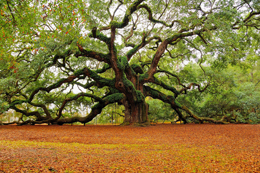
Volume 18, Issue 21 (May 22, 2016)
Paradise and the Thief on the Cross
By Kyle Pope

When Jesus was crucified, Scripture records that His cross was positioned between two others (Matt. 27:38; Mark 15:27; Luke 23:33; John 19:18). Luke tells us the men on these crosses were “criminals” (Luke 23:33), using a word that literally means ones doing evil. Matthew and Mark call them “thieves” (KJV) or “robbers” (ASV, NASB, NKJV, ESV). Brother David McClister, in his recent article “And With Him Two Other Men” points out that the word Matthew and Mark use could also mean, “insurrectionists” or “rebels.”* Whether their crime was rebellion against Rome or simply theft, one of these men acknowledged, “we receive the due reward of our deeds” (Luke 23:41a, NKJV).
The Bible tells us that at first both of these men mocked Jesus (Matt. 27:44; Mark 15:32). Luke, however, records that at some point one of the men had a change of heart. As the other continued to mock Jesus (Luke 23:39), this man rebuked him, saying “Do you not even fear God, seeing you are under the same condemnation?” (Luke 23:40). After acknowledging that they deserved their condemnation (Luke 23:41a), this criminal declared of Jesus, “this Man has done nothing wrong” (Luke 23:41b).
We are not told why he said that. Did he know what Jesus had said and done during His ministry? Had he followed Jesus at some point, only to stumble into theft or insurrection? Or, was this the first time he had encountered Jesus, but saw from all that was happening around him that this was no ordinary Man? The Holy Spirit has not answered these questions.
Whatever the source of this man’s knowledge about Jesus, the Holy Spirit has preserved for us a very important request he made to Jesus. He begged Him, “Lord, remember me when You come into Your kingdom” (Luke 23:42). What a striking request! These men were both about to die. What kingdom could either expect to experience? Did this man realize what the modern religious world has missed, that Jesus’ kingdom would not be an earthly, political dominion, but a spiritual realm made up of those in submission to Him as King (cf. John 18:36; Luke 17:21)? That seems unlikely—Jesus’ own disciples did not yet understand that (see Acts 1:6). Did he believe that Jesus would rise from the dead, and at that time establish an earthly kingdom? That seems to have been the expectation of Jesus’ apostles. After His resurrection they asked, “Will You at this time restore the kingdom to Israel?” (Acts 1:6). If so, how would that have helped the theif? Did he hope that Jesus would resurrect him too? On the other hand, was he speaking of a kingdom in the afterlife to which he assumed they would both go upon their death? Once again, the Holy Spirit has not given us the answers to these questions, only the fact that this man saw in Jesus One who would be a King who would at some point “come into” His own kingdom.
What we are told is Jesus’ answer to the man’s request. He told him, “Assuredly, I say to you, today you will be with Me in Paradise” (Luke 23:43). How are we to understand Jesus’ words? Where (or what) is this “Paradise” to which Jesus refers?
“Paradise” in the New Testament
The word “Paradise” is a transliteration of the Greek word paradeisos (παράδεισος) referring literally to an enclosed preserve, grove, park, or hunting ground. The New Testament uses this word only three times. The first is in our text in Luke 23:43. The last comes in a short letter in the book of Revelation directed to the church in Ephesus. After giving this church both praise and rebuke (Rev. 2:1-6), the letter ends with this charge:
He who has an ear, let him hear what the Spirit says to the churches. To him who overcomes I will give to eat from the tree of life, which is in the midst of the Paradise of God (Rev. 2:7).

This connection with the “tree of life” is interesting. This was what was said to stand in Eden before the sin of Adam and Eve (Gen. 2:9). It was accessible to the man and woman before their sin, but they were cast out of the garden in order to prevent them from having access to it, lest they should–“take also of the tree of life, and eat, and live forever” (Gen. 3:22). The Greek Old Testament translated before the time of Christ used the word paradeisos 13 times in Genesis in reference to Eden (Gen. 2:8, 9, 10, 15, 16; 3:1, 2, 3, 8 [twice], 10, 23, 24). At the close of the book of Revelation when description was given of the dwelling place of those saved by the blood of Jesus after final judgment (Rev. 20:11-15) and the destruction of the present heaven and earth (Rev. 21:1), twice we are told that the “tree of life” will be accessible to the God’s people once again. In this place it does not stand as a lone tree, but grows on either side of the “river of life” yielding its fruit constantly (Rev. 22:2). Jesus declared, “Blessed are those who do His commandments, that they may have the right to the tree of life, and may enter through the gates into the city” (Rev. 22:14). This would suggest that the “Paradise of God” promised to the church in Ephesus refers to the place of final reward where the children of God enjoy eternal life. Was this what Jesus meant when He spoke to the thief or are there other ways the word is used?
A second instance is found in Paul’s second letter to the church in Corinth. As Paul called upon the brethren to recognize the futile nature of boasting in fleshly accomplishments (2 Cor. 11:16-33), he then moved to speak “of such a one” of whom he said “I will boast” (2 Cor. 12:5). He calls him “a man in Christ” whom he claimed to have known “fourteen years ago” (2 Cor. 12:2), but it’s evident from the text that this is a humble way of speaking about himself. He describes this man as receiving “visions and revelations” (2 Cor. 12:1), but then goes on to describe his own “thorn in the flesh” which was given to him “lest I should be exalted above measure by the abundance of the revelations” (2 Cor. 12:7). Paul is talking about what he was allowed to see. Paul acknowledges twice that God had not revealed to him whether this had been a bodily transportation or an out of body experience (2 Cor. 12:2-3), but says this “man in Christ” was “caught up to the third heaven” (2 Cor. 12:2). The Jews conceived of three distinct realms of heaven—The first where the birds and the clouds are, the second where the stars, sun, and moon are, and the third, where God is. Paul uses a parallel term to describe this same place declaring of the same man, “he was caught up into Paradise” (2 Cor. 12:4a). In this remarkable experience, Paul was allowed to see (as brother Melvin Curry puts it) the very “abode of God” (Truth Commentary on Second Corinthians Bowling Green, KY: Guardian of Truth Foundation, 2008. p. 409). Was this what Jesus meant when He spoke to the thief on the cross, or is there yet another way of understanding Jesus’ words?
Jesus’ Death and Jesus’ Wording
To answer this we must consider two things: 1) What does the New Testament teach about where Jesus went upon His death? and 2) Is there anything in the wording of Jesus’ promise that helps us narrow its meaning?
On the Day of Pentecost when the Holy Spirit came upon the apostles and they declared Jesus as the resurrected Messiah, Peter appealed to Psalm 16 as a prophecy of the Messiah’s resurrection. He quotes verse 10 to say, “For You will not leave my soul in Hades, nor will You allow Your Holy One to see corruption” (Acts 2:27). Peter then explained that this prophetically pointed to Jesus (Acts 2:29-32). Declaring that David, “spoke concerning the resurrection of the Christ, that His soul was not left in Hades” (Acts 2:31). So where did Jesus go when He died? To “Hades” the place of all departed souls prior to judgment. Is this the “Paradise” to which Jesus refers?
On one occasion Jesus told an account of a rich man and a poor man named Lazarus and events that happened after their deaths (Luke 16:19-31). People often call this a “parable,” but it is never identified that way in Scripture. Like Acts 2 it describes all who die (prior to judgment) going to “Hades” (Luke 16:23). Yet, while final sentencing and judgment has not happened to them yet, we are told that there is a separation of the righteous and the wicked. Lazarus went to the region of Hades called “Abraham’s bosom” (Luke 16:22) where he was “comforted” (Luke 16:25). The rich man went to a region “in Hades” called simply “torments” (Luke 16:23). As Jesus describes it between these two areas is a “great gulf” preventing souls from going from one region to the other (Luke 16:26). Since Jesus is said in Scripture to have gone into “Hades” upon His death (Acts 2:31) is it reasonable to conclude that the “Paradise” where Jesus promised the thief “you will be with Me” (Luke 23:43) is the same region of Hades described as “Abraham’s bosom” (Luke 16:22).

Someone might ask, how do we know that Jesus wasn’t talking about “Paradise” in either of the ways Paul or the book of Revelation used the term? Let’s notice Jesus’ wording. He said, “Assuredly, I say to you, TODAY you will be with Me in Paradise” (Luke 23:43, emphasis mine). We noticed in the example in Revelation 2:7 the connection with “the tree of life” and saw that this describes a condition after final judgment (cf. Rev. 20:11-15; 22:14). We should note something that is said to happen before final judgment. In order for the dead to appear before the “great white throne” of judgment (Rev. 20:11), we are told:
...Death and Hades delivered up the dead who were in them. And they were judged, each one according to his works. Then Death and Hades were cast into the lake of fire. This is the second death (Rev. 20:13b-14).
It is only after this that the “new heaven and new earth” are said to appear (Rev. 21:1) and “the tabernacle of God” now is said to be “with men, and He will dwell with them” (Rev. 21:3).
The “Paradise” of Revelation 2:7 is a place of eternal life with God after judgment. The “Paradise” of 2 Corinthians 12:4 is the present “abode of God”—something Paul was allowed to see, but no one can enjoy until after judgment (cf. Rev. 21:3). Since Jesus is clearly declared in Scripture to have gone into “Hades” upon His death (Acts 2:27, 31)—yet, “Death and Hades” must be cast into the “lake of fire” before final judgment—if Jesus promised the thief “today you will be with Me in Paradise” He must have been using this term to refer to the region of Hades also called “Abraham’s bosom” (Luke 16:22). We may see from this that “Paradise” should not be understood as the formal proper name of a single place or condition, but as a way of describing a wondrous place of beauty, joy, comfort, and peace—whether that be in the realm of the saved prior to judgment, the present “abode of God,” or the final place where God’s people with dwell with Him eternally after judgment.
* McClister, David. “And With Him Two Other Men” Focus Online April 12, 2016 [online] http://focusmagazine.org/and-with-him-two-other-men.php.

